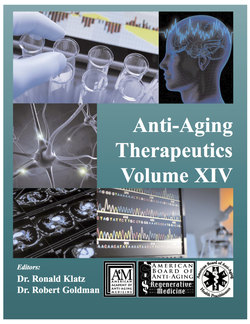Читать книгу Anti-Aging Therapeutics Volume XIV - A4M American Academy - Страница 67
На сайте Литреса книга снята с продажи.
CONCLUDING REMARKS Proponents of Pharmacologic Iodine
ОглавлениеRevisionist claims have been made over the last few years regarding ideal iodine intake. An argument has been put forth that since iodine has various pharmacologic effects at dose well above established levels for optimal thyroid function, then these very high doses must be physiologically essential. The proponents call on results from iodine challenge tests as proof of a deficiency existing in all or nearly all who are tested. The proposed doses are contained in a product called Lodoral®, which ranges in potency from 12500-50000 μg of iodine per tablet. These levels are 12.5-50-fold above the 1000-1100 μg. safe UL established by the WHO and the International Council on Iodine Deficiency Diseases.
Numerous problems exist with the premises of this position. Firstly, whilst it is true that nutrients may have medically useful effects when used in doses above amounts needed to fulfill their physiologic role; this does not mean that such doses are safe or appropriate for long-term use. Secondly, urinary iodine is not expected to reach a steady state for several months after iodine ingestion is raised or lowered. Therefore a 24-hour urine collection post iodine-loading dose would not reflect iodine status. Finally, the toxicology of iodine is well established. Some can manifest latent antithyroid antibodies when raising iodine intake by even a few hundred micrograms.
Whilst it is plausible that Lodoral® can help with fatigue, as many doctors have reported, this is hardly an argument to justify its use since iodine has long been known to cause stimulant like side effects early on in its toxicity. It is certainly possible to hear patients claim positive benefits from a treatment, and a clinician may not see side effects even with a high number of observations. Statistically, one could prescribe lovastatin to 6490 patients prior to seeing a single case of hepatocellular damage. Yet we take it as a given that liver damage is a risk patients face when taking statin drugs and we factor such risk into the risk/benefit assessment prior to prescribing. The risks with mega-dose iodine are quite clear. The benefits are vague and nebulous at best and there is no evidence to support putting a patient at risk for life-long thyroid disease or possibly lethal thyroid storm for the poorly substantiated possible benefits claimed by its proponents.
